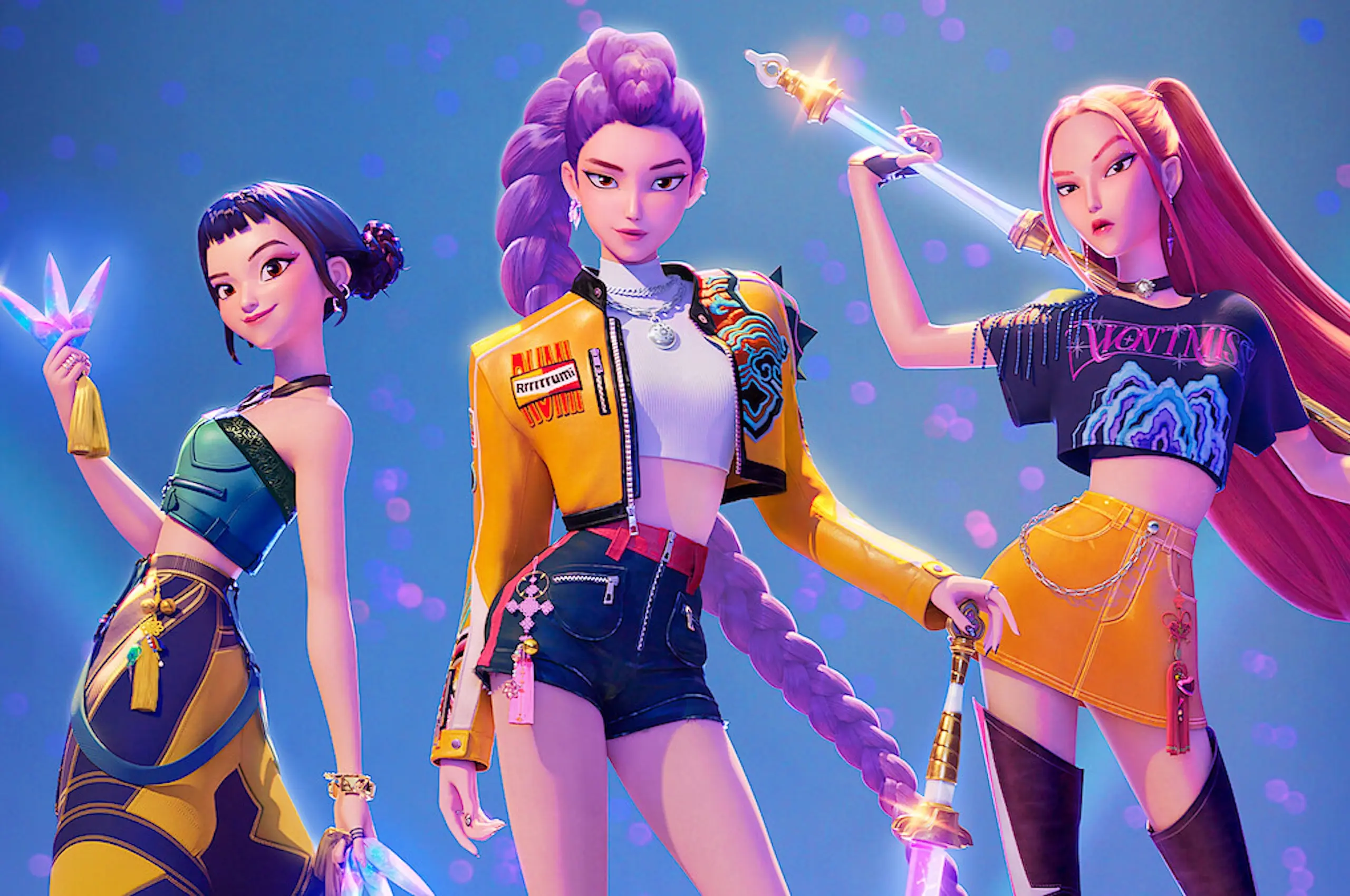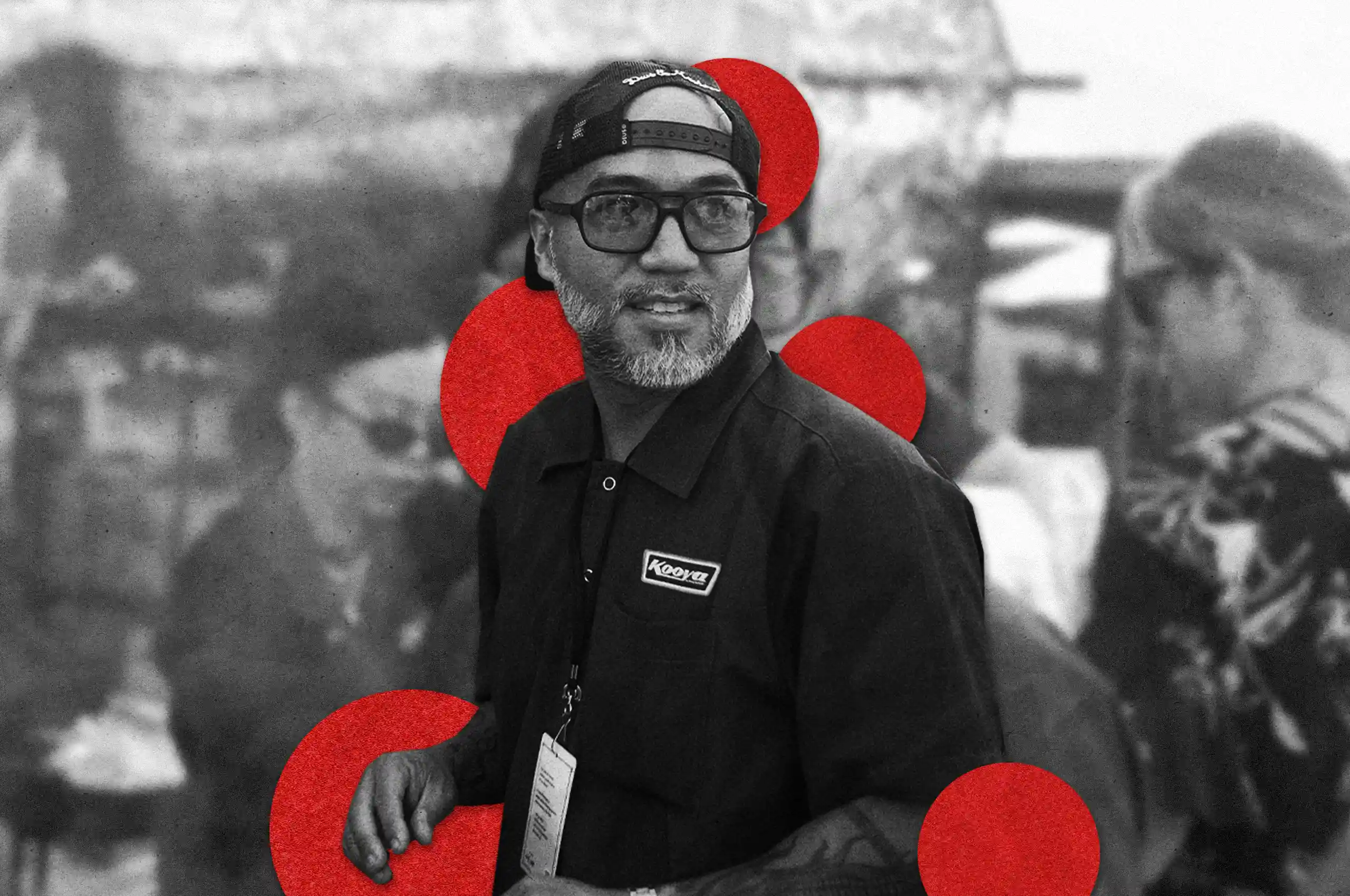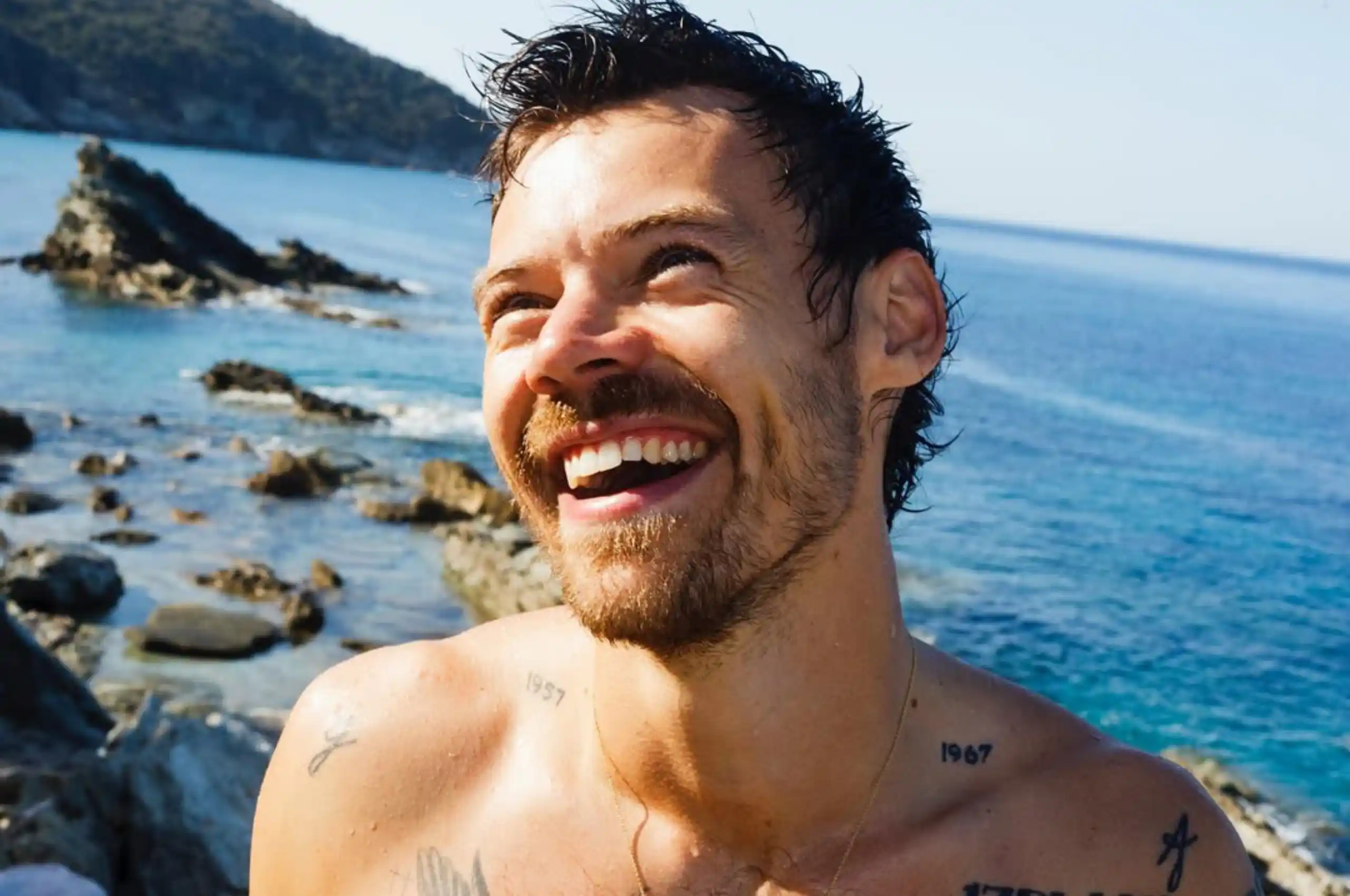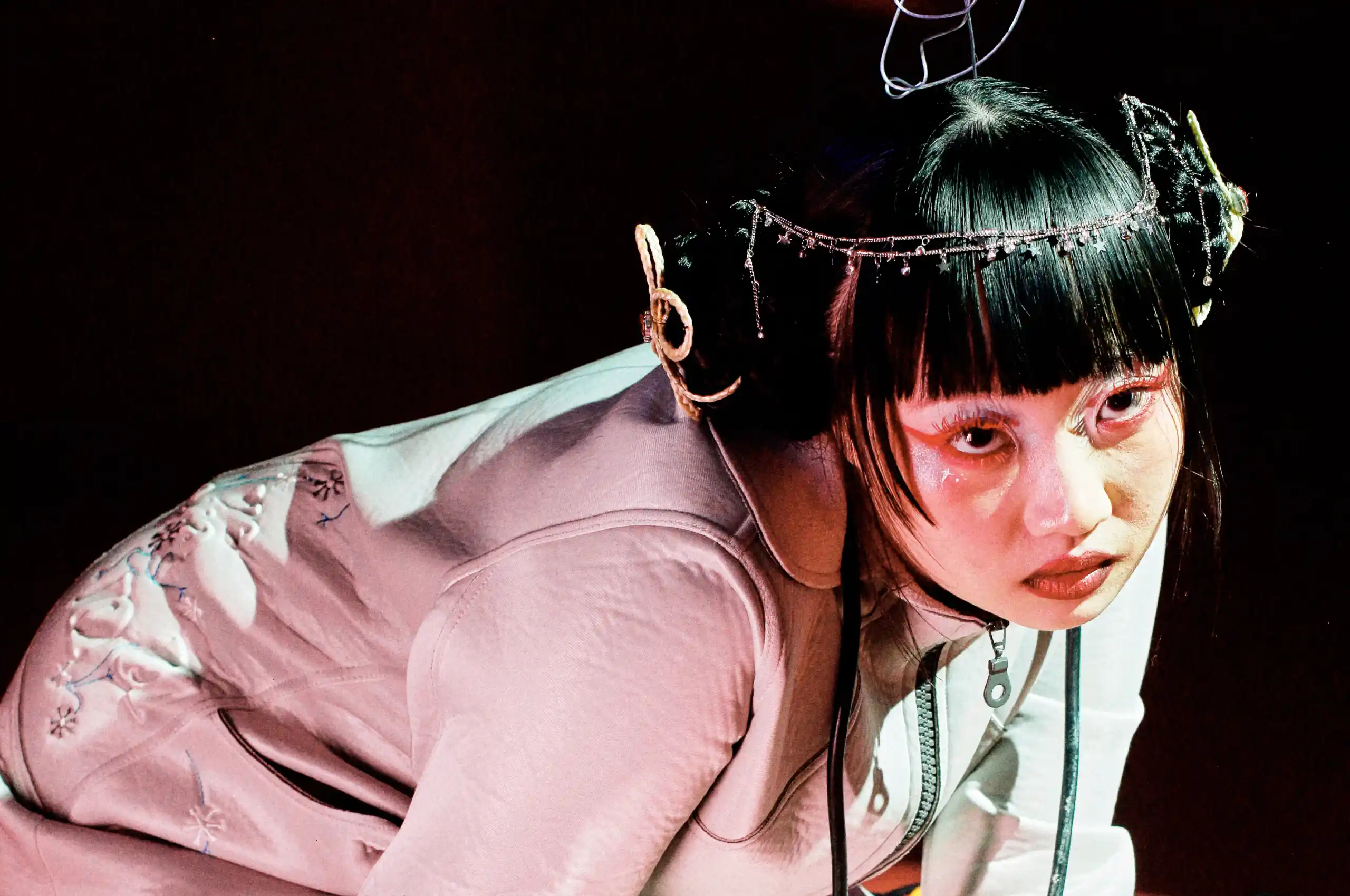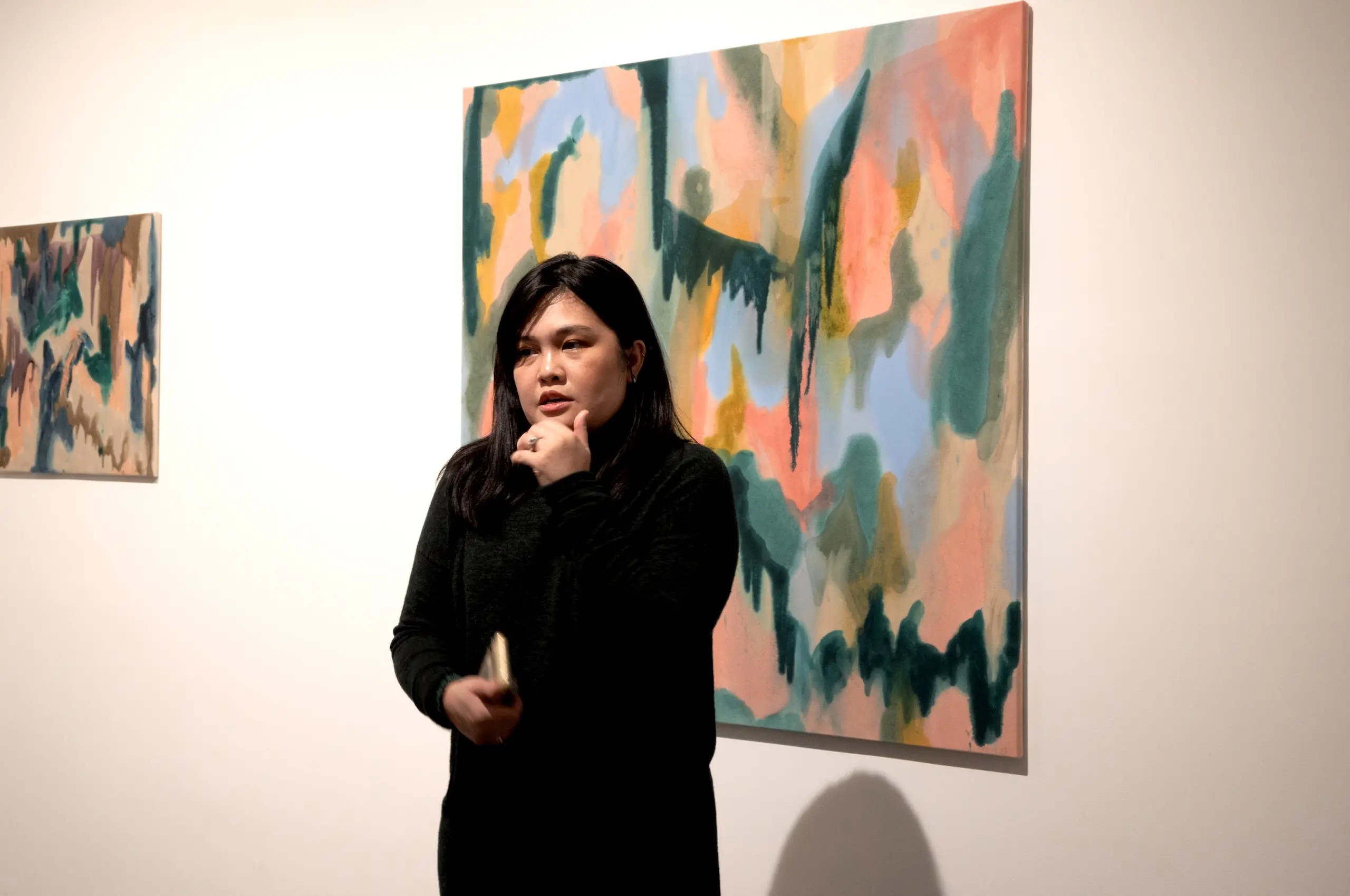KPop Demon Hunters may have a wild premise, but the animated feature takes aim at some of the very real issues lurking within the K-pop industry.
The Sony Pictures Animation film, now streaming on Netflix, centers around Rumi (Arden Cho), Mira (May Hong), and Zoey (Ji-young Yoo): K-Pop girl group HUNTR/X by day, demon slayers by night. The girls have been charged with using their voices to protect the world from soul-eating demons. But things go awry when the demon king, Gwi-Ma (Lee Byung-hun), unleashes a seductive new adversary: a demon boy band, led by the charismatic Jinu (Ahn Hyo-seop).
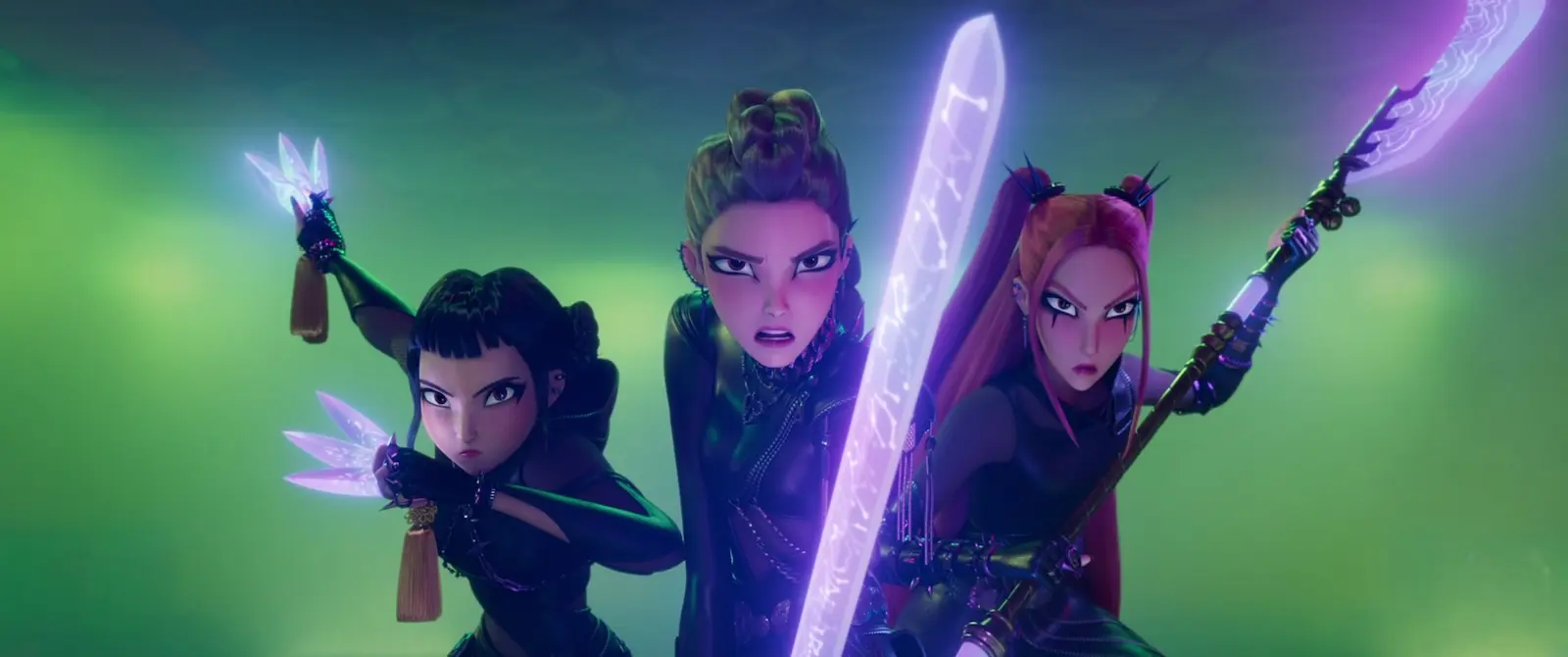
Directors Maggie Kang and Chris Appelhans have been vocal about how KPop Demon Hunters takes inspiration from the real-life K-pop groups. HUNTR/X was modeled on groups like Blackpink, Itzy, and Twice, three members of which (Jeongyeon, Jihyo, and Chaeyoung) sing the film’s main title song, “Takedown.” The members of the demon boy band Saja Boys were inspired by groups like BTS, Stray Kids, and Bigbang. Adding to the movie’s connection to the real-life industry is its collaboration with The Black Label co-founder Teddy Park.
But underneath the fun references, dance numbers, and catchy soundtrack, KPop Demon Hunters sheds light on the darker side of the K-Pop world. The industry is famous for producing young, flawless, and ever-smiling “idols.” “Just that word in itself gives the idea that they have to be perfect: they have to be the ideal standard of entertainer,” K-Pop music columnist Jeff Benjamin said in an interview with CBC News. “That’s a lot of pressure for a young person.”
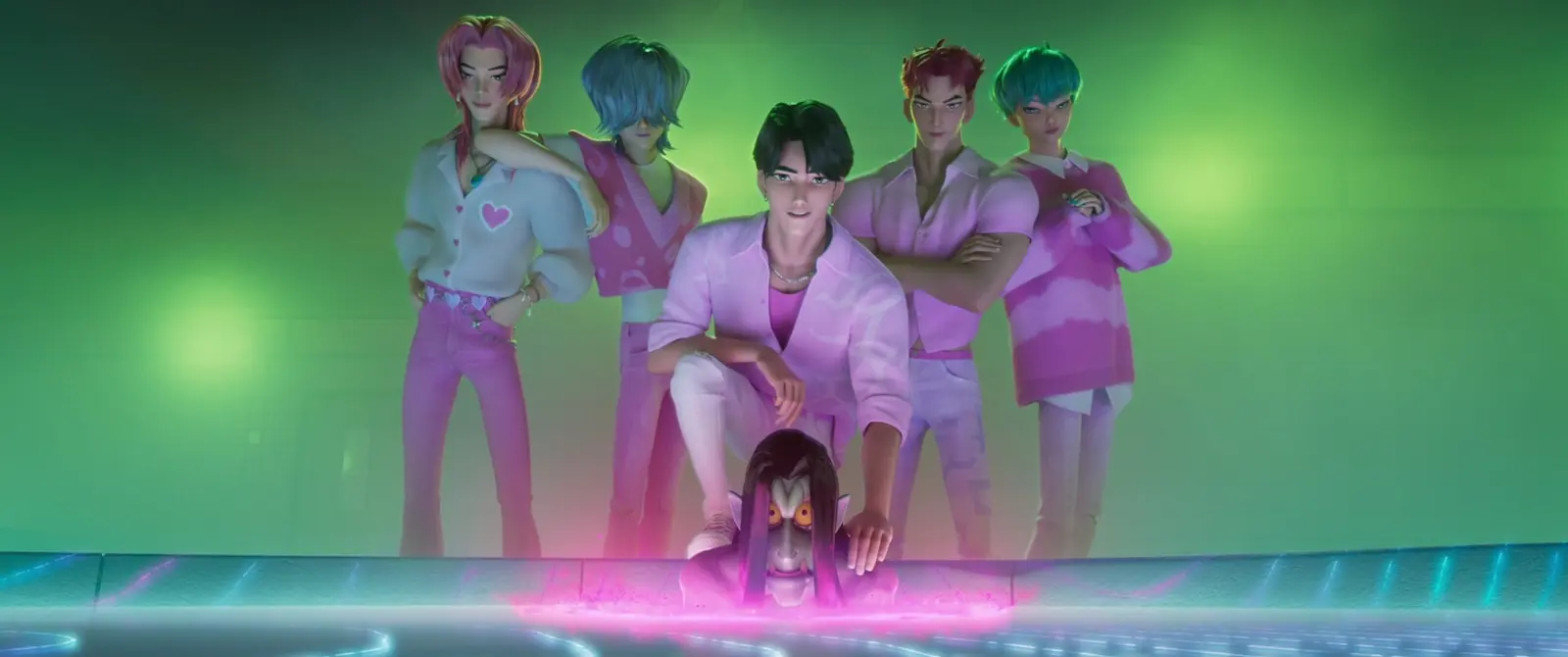
The road to idol stardom is not an easy one. After surviving a gruelling audition process, competing against thousands of applicants, aspiring idols are then whisked away by their management companies to secluded, intense K-Pop training camps. Under contract, the artists must adhere to strict training schedules and diet regimens, often sacrificing personal relationships to fully dedicate themselves to their craft. For those who finally make their global debut in a K-Pop group, the work is far from over. Idols face years of intense rehearsal, strict image control, and constant public scrutiny.
Idols have been reluctant to speak up for fear of destroying their public image or going against their entertainment companies. However, recent documentaries like Pop Star Academy: KATSEYE and The Birth of K-Pop, as well as reality competition series like R U Next?, have helped pull back the curtain. Former idols have also revealed the pressures they’ve faced within the industry. “The rules of no dating, no phones, always have to be on a diet, no texting — those all still exist,” said former Girls’ Generation member Jessica Jung in an interview with Time. “Talking to my friends in the industry right now, nothing has changed.”
KPop Demon Hunters channels these industry pressures most clearly through Rumi. As the leader of HUNTR/X, she’s expected to keep the group in sync and stay unshakable, even while fighting off literal demons. But when a personal secret begins to surface, the gap between her public image and private reality starts to widen. And there’s little room for vulnerability. Her fellow HUNTR/X members remain unaware of what she’s hiding, their mentor Celine (Yunjin Kim) has drilled into them that imperfection is weakness, and their manager Bobby (Ken Jeong) is too busy chasing social media metrics to notice anything is wrong.
What KPop Demon Hunters captures so effectively is how the industry’s polished façade often masks a relentless cycle of pressure and silence. Just as Rumi and her bandmates fight off demons in secret, real-life idols grapple with their own demons in secret: anxiety, exhaustion, and the constant demand to maintain an image that feels increasingly unattainable. The movie uses its deceptively playful premise not just for spectacle, but as a metaphor for the mental and emotional toll exacted by an industry that prizes perfection above all else.


